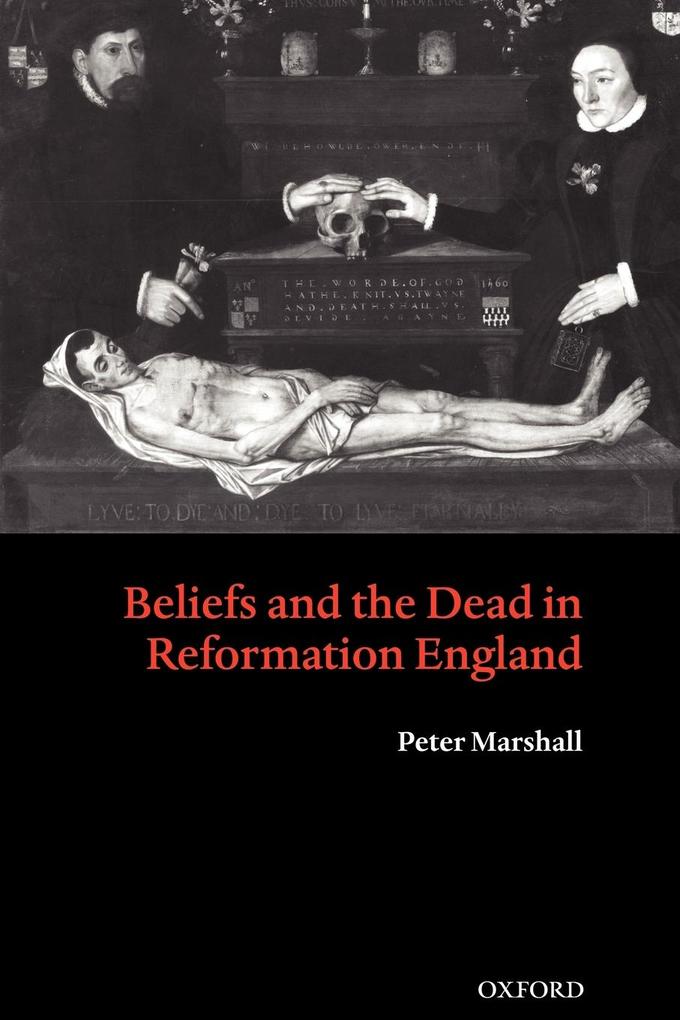
Zustellung: Di, 24.06. - Fr, 27.06.
Versand in 6 Tagen
VersandkostenfreiBestellen & in Filiale abholen:
This is the first comprehensive study of one of the most important aspects of the Reformation in England: its impact on the status of the dead. It explores attitudes towards the dead in pre-Reformation religious culture, and traces the uncertain progress of the 'reformation of the dead' attempted by Protestant authorities who sought to stamp out belief in purgatory and associated rituals. It also provides detailed surveys of Protestant perceptions of the afterlife, of the cultural meanings of the appearance of ghosts, and of the patterns of commemoration characteristic of post-Reformation England. Together these topics constitute an important case-study in the nature and tempo of the English Reformation as an agent of social and cultural change.
Inhaltsverzeichnis
- Introduction
- 1: The Presence of the Dead: Memory and Obligation before the Reformation
- 2: Debates over the Dead: Purgatory and Polemic in Henrician England
- 3: 'Rage against the Dead': Reform, Counter-Reform, and the Death of Purgatory
- 4: The Regulation of the Dead: Ritual and Reform in the English Church, c.1560-1630
- 5: The Estate of the Dead: The Afterlife in the Protestant Imagination
- 6: The Disorderly Dead: Ghosts and their Meanings in Reformation England
- 7: Remembering the Dead: Commemoration and Memory in Protestant Culture
- Conclusion
- Bibliography of Printed Primary Sources
- Index
Produktdetails
Erscheinungsdatum
01. Juli 2004
Sprache
englisch
Seitenanzahl
360
Autor/Autorin
Peter Marshall
Verlag/Hersteller
Produktart
kartoniert
Gewicht
547 g
Größe (L/B/H)
234/156/19 mm
ISBN
9780199273720
Entdecken Sie mehr
Pressestimmen
."..thoroughly researched and gracefully written study of changing thought and action over the century following the Henrican reforms..."--Anglican and Episcopal History
."..the first critical study of the Protestant concept of the dead and the notion of life after death in early modern England. Primarily researched from tract and sermon literature, this sharply focused and surprisingly readable account of the 'death of purgatory' is an original and important contribution to English Reformation studies. Beliefs and the Dead in Reformation England should be included in all academic collections on Tudor-Stuart England."-- HISTORY: Reviews of New Books
"A model of wide-ranging historical scholarship. This type of scholarly approach makes Marshall's text useful to any student of Reformation." -- The Historian
."..the first critical study of the Protestant concept of the dead and the notion of life after death in early modern England. Primarily researched from tract and sermon literature, this sharply focused and surprisingly readable account of the 'death of purgatory' is an original and important contribution to English Reformation studies. Beliefs and the Dead in Reformation England should be included in all academic collections on Tudor-Stuart England."-- HISTORY: Reviews of New Books
"A model of wide-ranging historical scholarship. This type of scholarly approach makes Marshall's text useful to any student of Reformation." -- The Historian
Bewertungen
0 Bewertungen
Es wurden noch keine Bewertungen abgegeben. Schreiben Sie die erste Bewertung zu "Beliefs and the Dead in Reformation England" und helfen Sie damit anderen bei der Kaufentscheidung.








